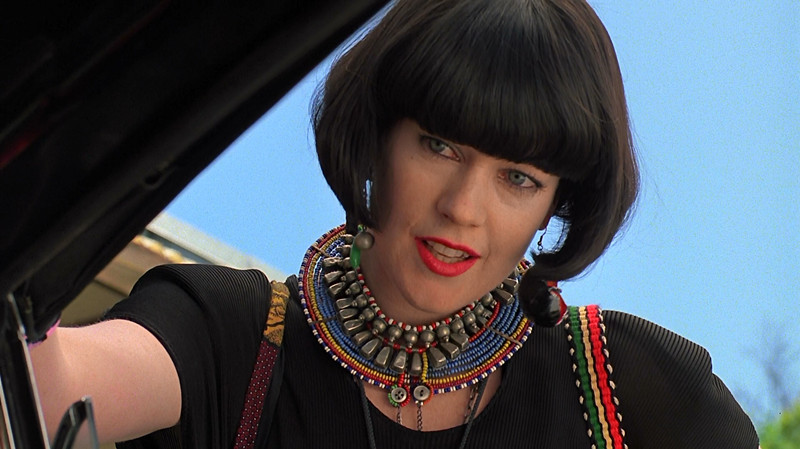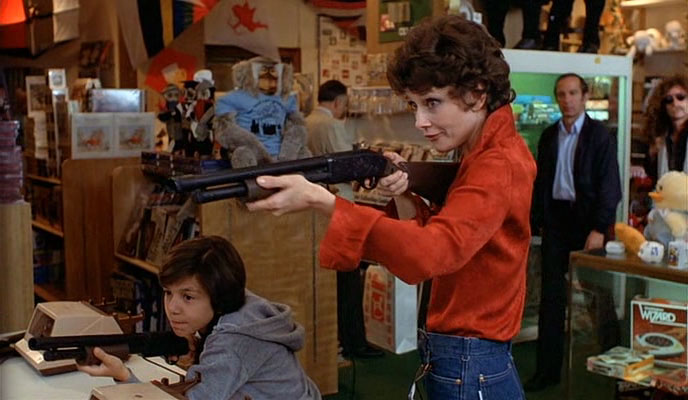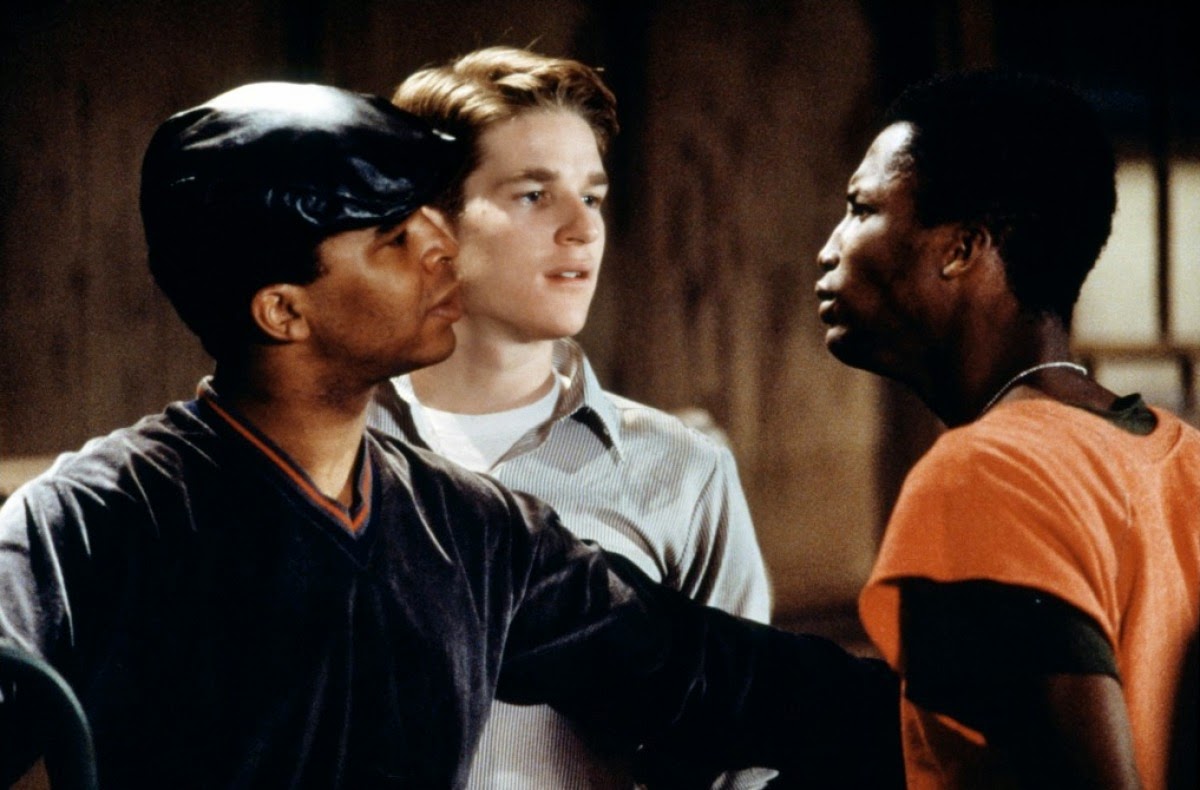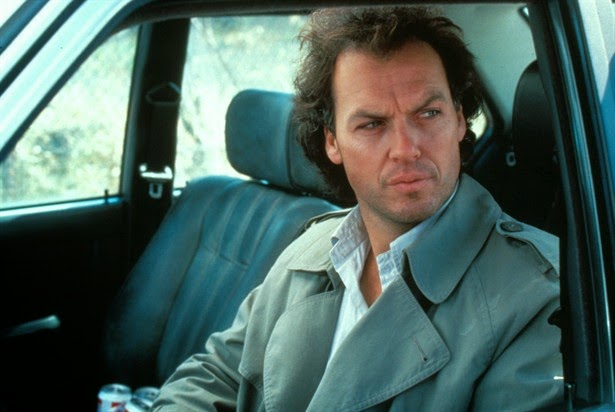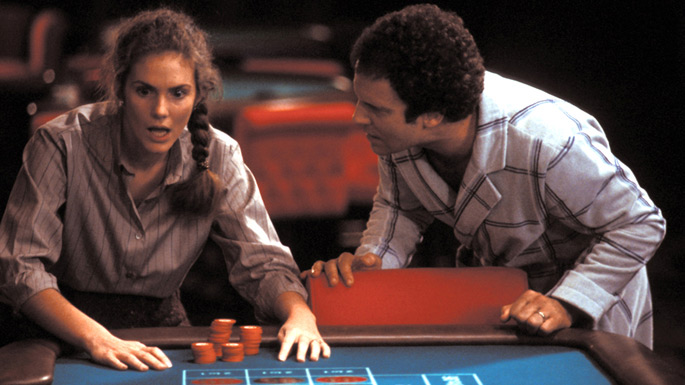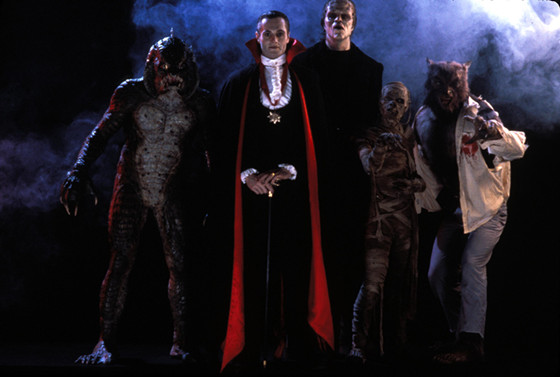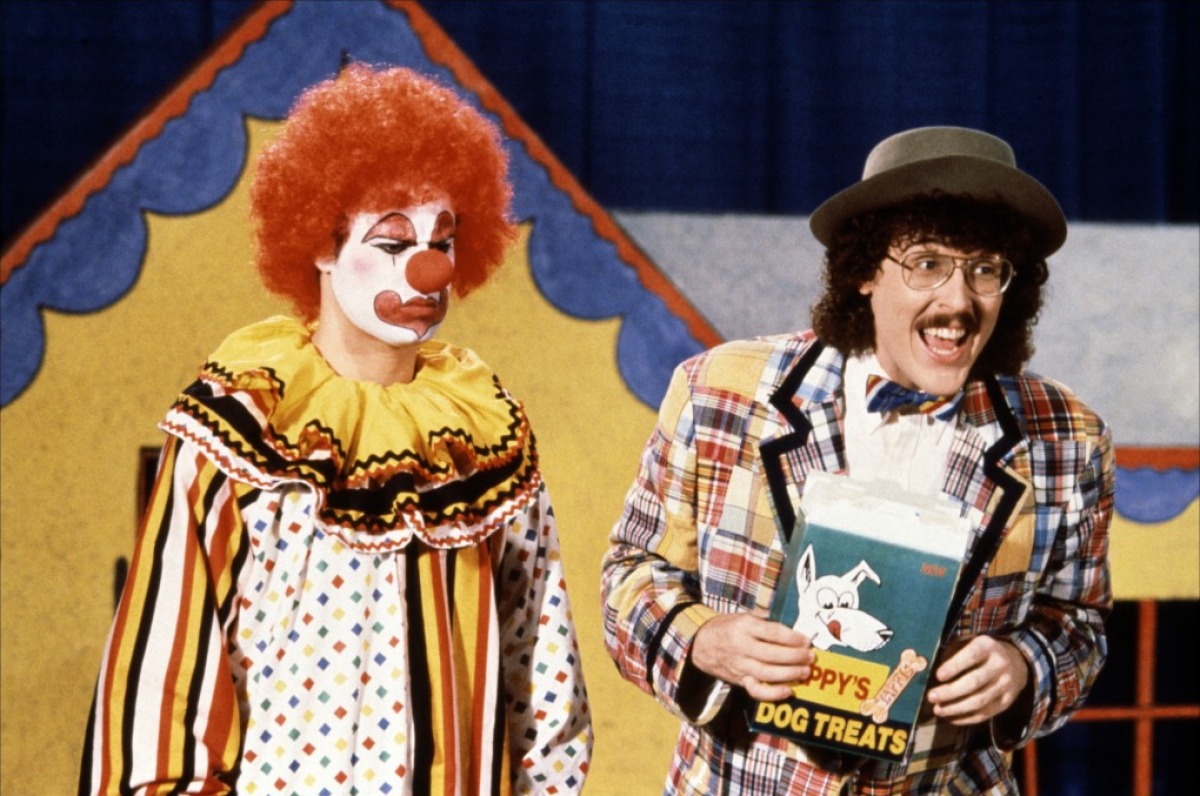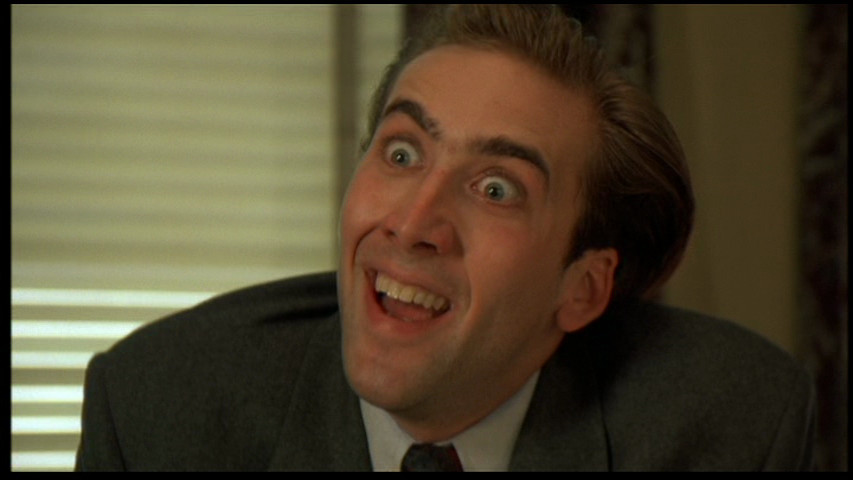There’s really nothing that can be said about the 1980’s that hasn’t already been said. In short, it was a fun, vapid, poppy, shallow, optimistic, and overwhelmingly materialistic decade that was reflected in both popular consumer and popular entertainment products.
Yes, the 1980’s, forgoing the leaps and bounds of artistry discovered by the filmmakers of the 1970’s, saw movies become “products” that were being released by major corporations just like clothing lines, cassette players, or (neon) headbands.
The best American movies of the 1980’s either unabashedly celebrated these notions and gave us great entertainment, or completely fought against the norms and pushed ahead towards greater discoveries.
David Lynch, Oliver Stone, Tim Burton and Spike Lee all managed to forge major directorial careers with very distinctive voices in popular American cinema, while the few 1970’s survivors (Martin Scorsese, Francis Ford Coppola, Robert Altman, Brian De Palma) suffered many ups and downs during the decade, but somehow managed to (sometimes barely) keep afloat.
The 1980’s were undeniably the first decade to be truly ruled by popcorn pictures. Comedy, Action, Adventure, Science Fiction, and Fantasy movies reigned. Films made for children, teenagers, and families were in abundance. Some were great, some were horrible, and some were underrated.
Dramatic films made for adults with political, darkly sexual, or mature themes presented intelligently were produced in steady but highly lesser amounts. Some of these films were classic Award-winners, some were bloated wastes of money and talent made to appease the ego of a hot director or star, and many went by underrated, unknown and unnoticed.
The 1980’s was the decade in which everyone loved the movies. Audiences weren’t yet aware enough to be cynical, and they weren’t educated enough with “making of” documentaries or DVD special features to ruin their favorite magicians’ tricks just yet.
Most audiences at the time certainly never dreamt everyone and their neighbor would one day be making films of competing quality with home video equipment thirty years later. It was the last decade movies were magic, but it was also the first decade they saturated us and perhaps started to wear out their welcome as a result.
It is only natural that such a surface-driven decade would ignore some of the best of the best of the films released within it. Films started getting lost in the cogs of the machines that were theatrical and home video releases. Many films were mis-marketed, released at the wrong time of the year, or simply just too unique for their own good.
The following thirty films are representations of some (but certainly not all) of those films. These films have value as entertainment, as art, or, as the best often do, a large dose of both.
30. One Crazy Summer (1986)
Perhaps one of the most unsung but truest heroes of 1980’s comedy is the man known as Savage Steve Holland, the writer-director who gave us Better Off Dead. That cult classic was a very important part of many eighties and post-eighties childhoods. Its silly, absurd style was almost surreal, and there was also something just bent in all the right places that made it unique, memorable, and one of a kind.
One Crazy Summer, again starring Cusack and a then-up-and-coming Demi Moore is a continuation of that exact same style: silly, stupidly surreal, surprisingly satisfying, and just plain fun. It’s what the eighties were all about, and it’s well worth checking out for a nostalgic good time.
29. They All Laughed (1981)
Peter Bogdonavich’s falling directorial star about crashed with this mad cap romantic comedy about private detectives following (and falling in love with) beautiful women suspected of infidelity. Quirky and quite unique, They All Laughed was before its time, and arguably set the stage for some of David O. Russell’s more absurd early efforts over a decade later (Flirting With Disaster, I Heart Huckabees).
The stellar cast, featuring Ben Gazzara, Audrey Hepburn, John Ritter, and Dororthy Stratten, fits the tone of the film perfectly. Sadly, Stratten’s tragic murder shortly before the film’s release weighed heavily over the public’s perception, and the film’s reputation never quite fully recovered.
28. Streamers (1983)
Robert Altman’s cinematic adaptation of David Rabe’s Tony-nominated, Vietnam-themed theatrical work, Streamers, is an equally intense and observant production. Centering around a group of Army recruits waiting for deployment to Vietnam, Streamers is every bit as much about the shadow of the war hovering over the young men’s lives as it is about the sexual and racial politics of the time in which it’s set.
Matthew Modine, David Alan Grier, and Michael Wright deliver outstanding lead performances. The film also serves as a worthy companion piece to the barracks comedy of the more known (but still underrated) eighties-made and World War II-set Biloxi Blues.
27. She’s Having A Baby (1988)
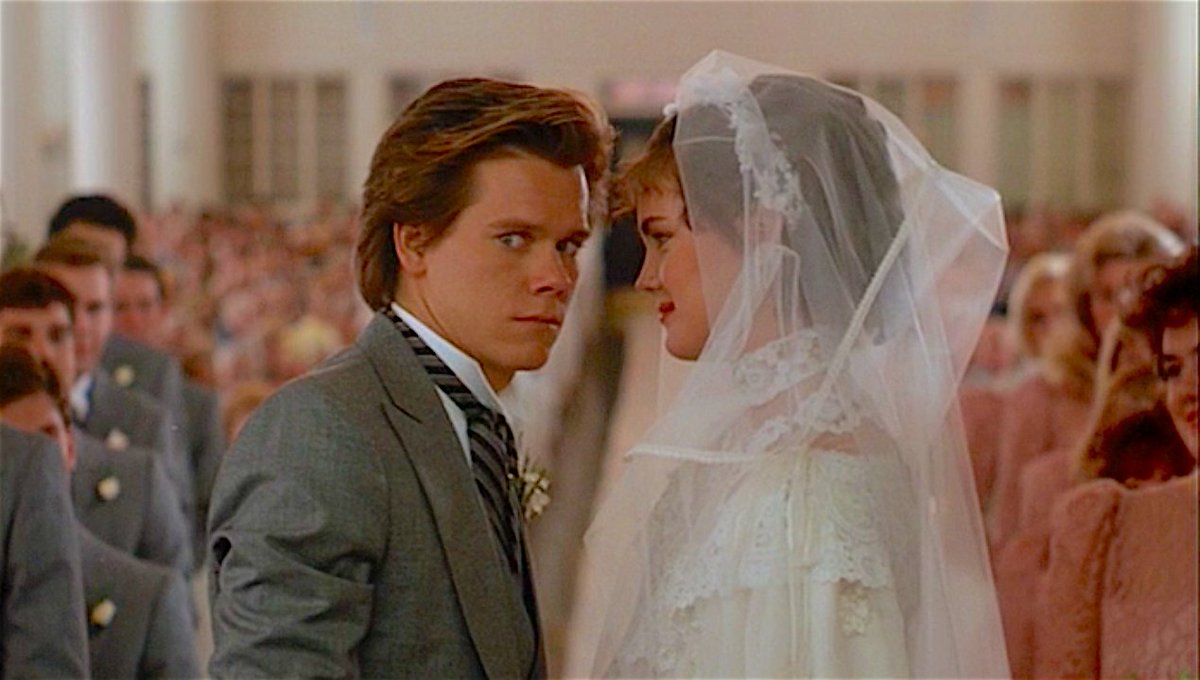
Probably the late writer-director John Hughes’ most personal and original film. Kevin Bacon and Elizabeth McGovern star as young parents-to-be struggling with finding steady work, living life in everyday suburbia, and dealing those pesky but always-recurring adult responsibilities.
Very moving and astute in its observations of love, responsibility, and family, She’s Having a Baby is the rare underrated Hughes picture in a decade the filmmaker practically seemed to co-own along with Steven Spielberg. This film is a wonderfully moving and very creative presentation of eighties middle-American life.
26. Clean and Sober (1988)
Moonlighting creator Glen Gordon Caron made his directorial debut with this solid but standard eighties “just say no” melodrama about drug addiction. While very well made and well acted by a wonderful supporting cast that incudes Morgan Freeman, Kathy Baker, and M. Emmett Walsh, Clean and Sober truly rises above it’s “made for tv” level of quality for one simple reason: a brilliant, raw, and shattering lead performance by Michael Keaton, in his first lead dramatic role.
Keaton is volatile, unlikable, selfish, piggish, manipulative, and lying… He is an addict in the truest sense of the word whose only goal is to get high, stay high, and avoid all the consequences that come with it. Keaton elevates the film to a painfully real and painfully human experience that could have easily been written off as a cheap movie of the week.
Keaton’s work, however, brings the film to life in an explosion of pain, irrationality, and greed that only a true addict could exhibit. Keaton’s work in Clean & Sober was widely underrated at the time of its release, though it arguably opened the door for him to be taken seriously with the next leg of his career and his phenomenal success to come.
25. Lost In America (1985)
Albert Brooks never quite found the audience or the status he deserved as a comedian-writer-director-actor. He’s had a loyal fan base and the respect of many respected critics for years, yes, but he never truly found the audience or garnered the widespread attention he deserved for his quirky, intelligent satires of adult relationships and middle American issues (Modern Romance, Defending Your Life, and Mother just to name a few).
Lost in America is, arguably, Brooks’ lost masterpiece. Costarring Brooks and Airplane!’s Julie Hagerty as a couple of upper middle class yuppies who decide to abandon society and hit the road in an motor home Easy Rider-style, Lost in America is probably one of the smartest comedies of the eighties to reflect the fading idealism and innocence of the free-spirited sixties.
As hilariously quirky as it is insightful, Lost in America is simultaneously one of the great comedy of errors and satirical examinations of American life of its time.
24. The Monster Squad (1987)
In an alternative universe, the name Fred Dekker is synonymous with Spielberg, Lucas, Joe Dante, Chris Columbus, and Richard Donner in terms of bringing intelligent, fun fantasy/family fare to movie screens in the eighties. Instead, he’s known as for making the underrated children’s eighties cult film, The Monster Squad, and for being the poor soul who directed the family-friendly, PG-13-rated, final nail on the lid that was the coffin of the original Robocop franchise with the irredeemable Robocop 3.
It’s too bad both Dekker and The Monster Squad got lost in the mix, however, because they both show flashes of creativity, ingenuity, and flair that rival even the most successful and popular of Spielberg’s productions. Scary, fun, heartfelt, and the perfect companion piece to Richard Donner’s masterful The Goonies, The Monster Squad should have been an instant classic upon its release.
Instead, it’s going to have to settle on being all the aging hipsters of the world’s response to those who name The Goonies as their favorite childhood film: “What? You haven’t heard of The Monster Squad?! It’s like so much better than The Goonies…” Maybe not, but it’s close enough.
23. UHF (1989)
“Weird” Al Yankovic has been lurking in and out of the shadows for years. He had short moments of enormous, mass popularity in the eighties with his comedic spoof albums, then would quickly shrink away into obscurity for months or years at a time. Some people loved him, many people hated him, and most everyone else just didn’t know what to think of him.
UHF was one such project no one really knew what to think of at the time of its release. Hard core Yankovic fans of the time were all too aware of the brilliance and the uniqueness behind the film’s humor. General audiences, however, were more or less lost scratching their heads.
Yankovic plays a hapless dreamer who inherits his uncles failing UHF television station. His eccentric tastes soon create a whole slate of programming that turns the station into an almost-overnight success. A rival station soon tries to put an end to their success, however, and an absurd Bad News Bears-like eighties competition ensues.
Perhaps overshadowed by the Zucker-Abrahams-Zucker masterpiece spoof films of the eighties, UHF was lost at the time of its release and, in spit of the cult that has surrounded it in recent years, it still needs to finds its audience outside of only Yankovic’s most hard core fans.
22. Eight Men Out (1988)
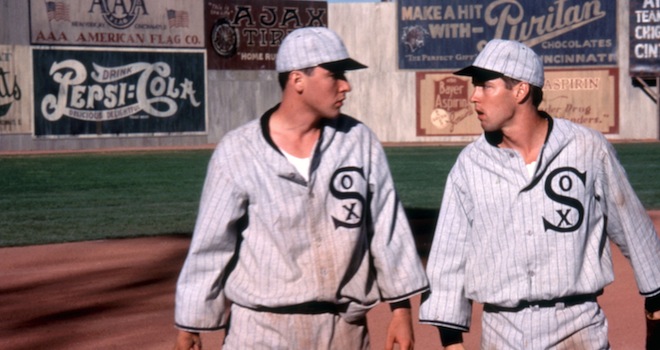
Writer-director John Sayles’ dramatic adaption of the 1919 World Series scandal in which select members of the Chicago White Sox accepted bribes to lose is a heartbreaking and resonating portrayal of lost ideals and broken dreams.
There isn’t a weak link in the cast, which includes John Cusack, Charlie Sheen, D.B. Sweeney, Christopher Lloyd, Michael Lerner, John Mahoney, Michael Rooker, and David Strathairn, just to name a few. Cusack, in particular, holds the moral weight of the film on his shoulders, being the one team member who is aware of the circumstances, but refuses to participate in them or profit. His conflicted performance is shattering, sympathetic, and skilled beyond his (especially for the time) years.
Exceedingly well written and well-executed, Eight Men Out is a sadly overlooked and underappreciated examination of some of the truly heartbreaking consequences behind vanity and greed.
21. Vampire’s Kiss (1989)
After Hours scribe Joe Minion created another utterly warped dark comedy centering around a New York yuppie. This particular story, quite uniquely, centers around a snooty socialite played by Nicolas Cage who believes he is the process of turning into a vampire.
At the time of its release, the film was buried on late night cable and home video, mis-marketed as being a horror sex comedy, and was infamous for pretty much one thing and one thing only: Nicolas Cage ate a live cockroach on camera and was never able to live it down since.
What audiences missed out on, however, was a truly ingenious and audacious performance from Cage. Part broad humor, part psychological horror, and part surrealist performance art, Cage’s work in Vampire’s Kiss is a masterwork of quirk, over the top gestures, bold physicality, and brilliantly shifting tonal layers.
Often written off as a crazed weirdo (especially in his early work), Cage’s over the top and creative work in Vampire’s Kiss and other roles of this time period laid foundations for some of the more daring work by other such unique performers as Jim Carrey, Johnny Depp, and Heath Ledger in years to come.
